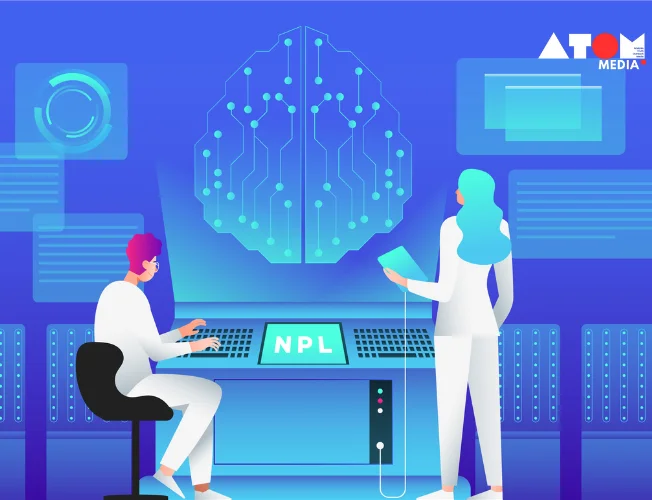Generative AI (GenAI) has well and truly taken root in workplaces, evolving from initial wariness to widespread adoption. This shift in perspective has spurred business leaders to leverage GenAI’s potential to maximize organizational productivity. While research quantifying its impact remains in its early stages, leaders across startups and enterprises are actively integrating GenAI to streamline operations across departments.
A January 2024 EY report employed case studies to showcase GenAI’s ability to supercharge productivity across various sectors. It highlighted how customer service agents equipped with GenAI-powered conversational assistants resolved a staggering 13.8% more customer inquiries per hour compared to their unequipped counterparts. Additionally, the report suggests that professionals like marketers, HR specialists, consultants, and data analysts can complete tasks 40% faster with the help of GenAI.
The accessibility of efficiency-enhancing GenAI tools is on the rise, with solutions like ChatGPT and Bard (formerly Gemini) leading the charge. Furthermore, AI copilots developed by Microsoft and GitHub have raised the bar by accessing real-time information from the internet and providing users with source links.
Understanding AI Copilots
In essence, an AI copilot is a conversational interface that leverages large language models (LLMs) to assist users in decision-making. Copilots boast the capability to understand, analyze, and process vast amounts of data.
To gain deeper insights into how copilots are reshaping workplace productivity, Inc42’s flagship GenAI Summit, held on April 3rd in Bengaluru, featured a panel discussion with industry leaders. Moderated by Ranjani Mani, Director & Country Head of Generative AI at Microsoft India, the discussion included Samanyou Garg, Founder & CEO of Writesonic; Zaher Abdul Azeez, Director of Data Sciences & Engineering at NoBroker.com; and Sandeep Varma, Head of Data Science at PhysicsWallah.
The panelists delved into various facets of GenAI, including the future of copilots in the workplace, how they drive efficiency, and the potential for reimagining CRMs and ERPs with their assistance.
Copilots: Aiding Code Writing and Personalized Sales
The discussion commenced with Mani highlighting her own reliance on copilots, which has increased by a staggering 100 times in the past year.
Sandeep Varma, representing the edtech giant PhysicsWallah, addressed Mani’s query regarding how such tools contribute to business operations and goal achievement. He explained how PhysicsWallah utilizes AI copilots to generate accurate student content and streamline internal operations.
“We’re conducting proof-of-concepts (POCs) with our Android team, particularly focused on generating unit test cases,” said Varma. “This frees up valuable developer time for innovation rather than repetitive tasks. While still in the POC stage due to some adoption challenges – many developers prefer writing code from scratch – the copilot has demonstrated an impressive 80-90% accuracy.”
Varma further elaborated on how PhysicsWallah is leveraging Azure OpenAI to build a robust Retrieval-Augmented Generation (RAG) architecture. This enables students to retrieve answers to their queries directly from the platform’s knowledge base, which encompasses a vast collection of video resources.
Expanding on GenAI use cases and their potential benefits for startups, Writesonic’s Garg identified content creation and marketing as areas ripe for disruption. However, he cautioned against the potential for tools like ChatGPT to generate generic responses lacking personalization.
“This is where copilot tools can truly shine,” said Garg. “At Writesonic, we’ve developed a tool that gathers real-time information from the web and assists in creating SEO-optimized content that ranks well in search engines.”
Garg provided a detailed example of how copilot tools can revolutionize personalization and reshape CRM operations, specifically within the sales domain. “These emerging copilot solutions function essentially like AI SDRs (sales development representatives),” he explained. “You can provide the copilot with a list of target prospects, and it will craft personalized messages for each one.”
Garg elaborated on how these AI-powered sales assistants can automate the follow-up process. Once a potential customer expresses interest in scheduling a meeting, the copilot can send a calendar link and update the CRM system by marking the lead as an opportunity.
Regulatory Compliance: A Critical Consideration
The panelists acknowledged that while businesses seek cost-effective solutions to expedite processes, they must not compromise on security.
According to a 2023 IBM report, the global average cost of a data breach skyrocketed to a staggering $4.45 million in 2023, reflecting a 15% increase over just three years. This alarming statistic underscores the importance of proactive measures for companies to address security concerns.
NoBroker.com’s Azeez emphasized the critical role of compliance for AI systems, particularly in sectors
Read more: Marketing News, Advertising News, PR and Finance News, Digital News





